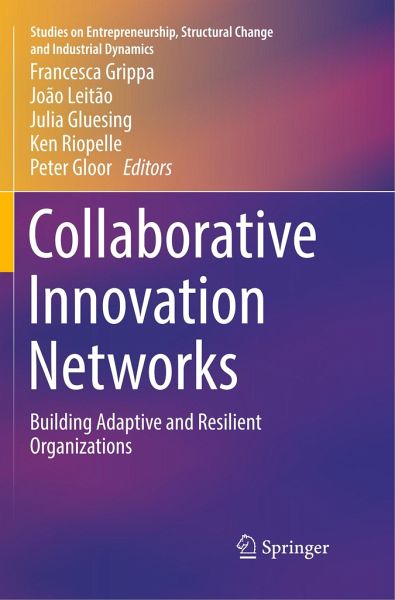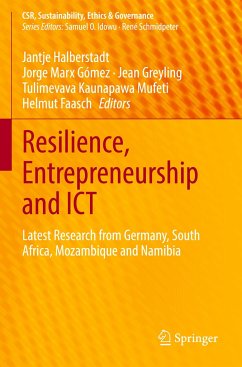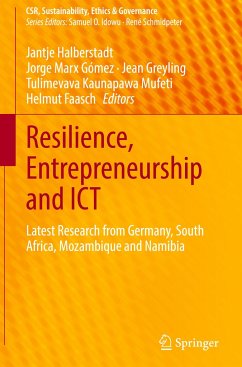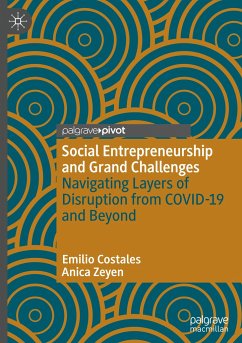
Collaborative Innovation Networks
Building Adaptive and Resilient Organizations
Herausgegeben: Grippa, Francesca; Leitão, João; Gluesing, Julia; Riopelle, Ken; Gloor, Peter
Versandkostenfrei!
Versandfertig in 6-10 Tagen
65,99 €
inkl. MwSt.

PAYBACK Punkte
33 °P sammeln!
This unique book reveals how Collaborative Innovation Networks (COINs) can be used to achieve resilience to change and external shocks. COINs, which consist of 'cyberteams' of motivated individuals, are self-organizing emergent social systems for coping with external change. The book describes how COINs enable resilience in healthcare, e.g. through teams of patients, family members, doctors and researchers to support patients with chronic diseases, or by reducing infant mortality by forming groups of mothers, social workers, doctors, and policymakers. It also examines COINs within large corpor...
This unique book reveals how Collaborative Innovation Networks (COINs) can be used to achieve resilience to change and external shocks. COINs, which consist of 'cyberteams' of motivated individuals, are self-organizing emergent social systems for coping with external change. The book describes how COINs enable resilience in healthcare, e.g. through teams of patients, family members, doctors and researchers to support patients with chronic diseases, or by reducing infant mortality by forming groups of mothers, social workers, doctors, and policymakers. It also examines COINs within large corporations and how they build resilience by forming, spontaneously and without intervention on the part of the management, to creatively respond to new risks and external threats. The expert contributions also discuss how COINs can benefit startups, offering new self-organizing forms of leadership in which all stakeholders collaborate to develop new products.












